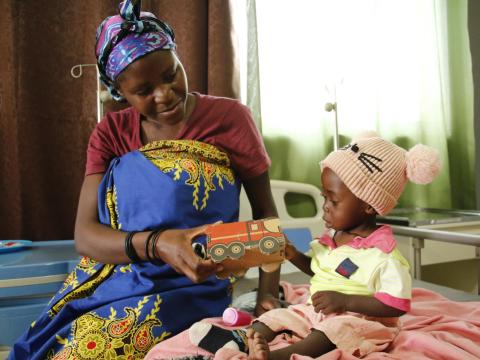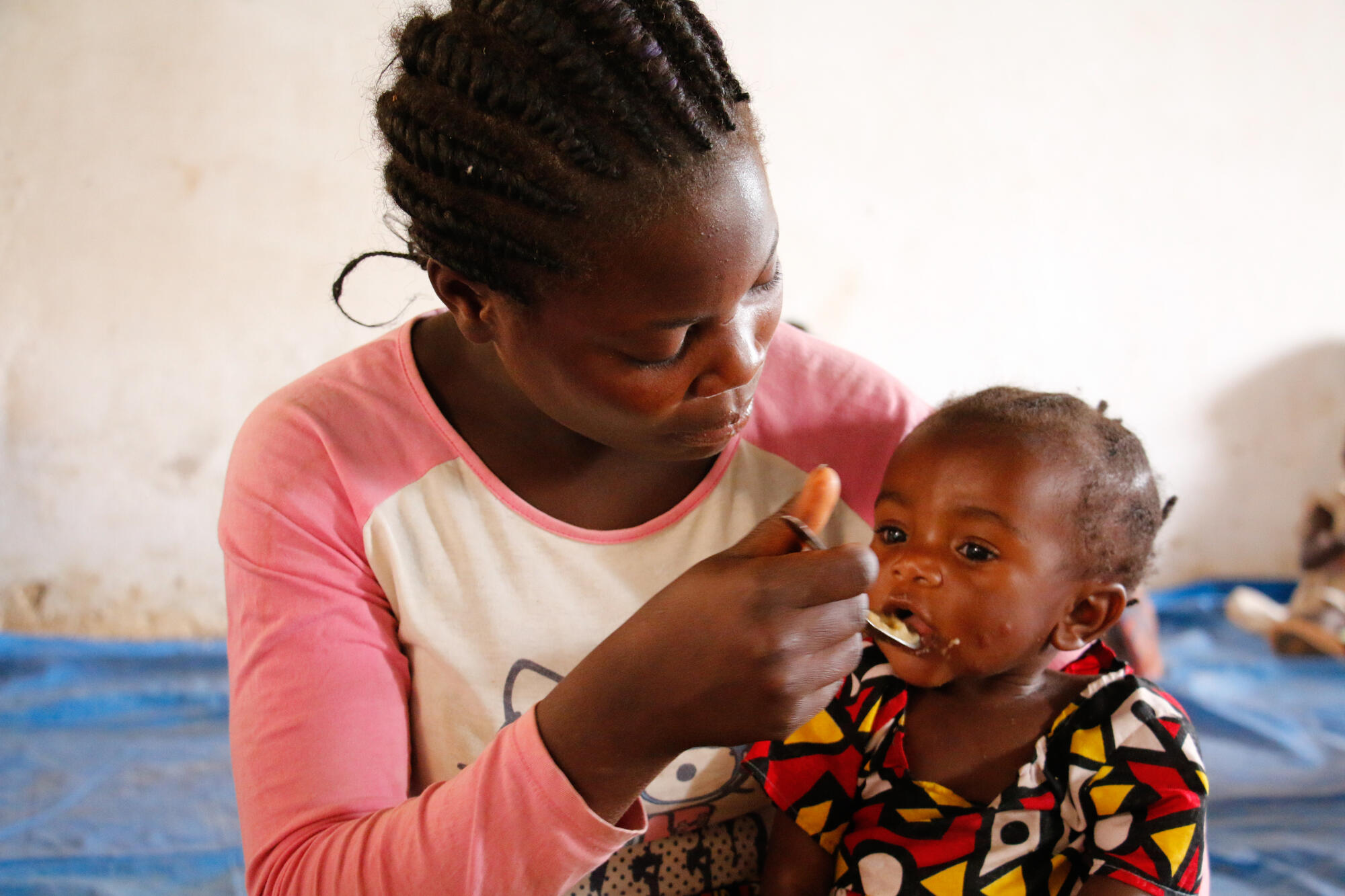The World Bank, World Vision, and the Government of Angola collaborate to address drought impacts in vulnerable communities

Robert Jan Bulten, World Vision Angola’s Lead for Multilateral Grants, wrote this story of partnership.
In Angola, particularly the southern provinces of Cunene, Namibe, Huíla, and parts of Cuando-Cubango, communities have been suffering the increasing effects of cyclical periods of drought in recent years. In the face of this severe consequence of climate change, households are experiencing food insecurity and exacerbated levels of acute malnutrition. Drought also intensifies general poverty levels in these regions and forces families to sell critical household assets.
In 2019, the Government of Angola sought the World Bank’s help in mitigating the effects of drought on its population and secured Bank funds for this purpose. With these funds in hand, the Angolan government turned to World Vision International as an implementer of a multisectoral drought response and institutional strengthening project. With an investment of $6.5 million, the project has significantly impacted people's lives in the targeted municipalities and strengthened the capacity of the Angolan Ministry of Health to respond to the nutrition crisis.
Working alongside the Ministry of Health and Provincial Directorates spanning Health, Agriculture, Social Affairs, Women and Family, Culture, and Water, World Vision initiated a comprehensive approach that saved lives and reduced suffering through interventions in agriculture, nutrition, WASH (water, sanitation, and hygiene), and child protection.
World Vision provided equipment and ready-to-use therapeutic and supplementary foods to treat malnourished children. They also established monitoring mechanisms; enhanced health personnel's capacity to manage malnutrition cases; and empowered community health workers to identify, register, and refer malnourished children to nutrition centers for treatment. Additionally, the project rehabilitated and operationalized solar-powered water systems, facilitated community water and sanitation committees, constructed latrines, promoted nutrition education, established community and school gardens linked to rehabilitated water systems, and boosted child protection.

For example, in Lufuma, Chibia municipality, World Vision supported a community kitchen that provided daily meals to over 300 malnourished children and elderly individuals. The head coordinator of the community kitchen, Ms. Olga, noted both the challenge and achievements by saying, "Often we get three or four children from the same household here, but we’ve had good results [in terms of recovery from malnutrition].”
At a different community kitchen’s reception center in Bibala, cooks hired by the provincial government of Huila provide corn-soya porridge mixed with oil and sugar to families who arrive in larger numbers every day.
One such family is that of Quinquilia.
Quinquilia arrived at the reception center having walked over 150 kilometers from her commune in the Interior of Huila with her son and her sister's family under the scorching sun by day and unbearable cold by night. During the trek, Quinquilia's sister died of hunger, leaving behind four young sons and baby Noah. Now, Quinquilia breastfeeds her sister's orphaned boy. "We are grateful for all the support we found here in Bibala. We get to have a good meal at least once a day, which is more than we could provide for our children back home," Quinquilia said.
In Vifolo, Bata Bata commune, Huíla province, men and women received agricultural inputs and food preparation training to enhance family nutrition. As part of this training, farmers within various communities learned to detect and refer suspected malnutrition cases to health centers with the help of community health workers.
More broadly, World Vision equipped over 240 health facilities across southern Angola with essential tools and trained medical and logistical teams to respond effectively to malnutrition cases.
Angolan government officials credited World Vision's assistance and expertise while noting the ongoing need. According to the Vice-Governor for Social Affairs in Cunene province, "The situation regarding drought impact and hunger in Cahama municipality has significantly improved due to the implementation of community kitchens and water wells in collaboration with World Vision. However, increased nutritional screening has revealed more children with nutritional problems, indicating a previously underestimated reality. Furthermore, people from distant areas are now accessing community kitchens."
All in all, the project screened nearly 1.4 million children for nutrition, treated over 113,000 children for severe and moderate acute malnutrition, and provided significant caregiver counseling. In addition, 50 rehabilitated water points benefitted nearly 60,000 people and vegetable gardening initiatives brought sustenance to more than 2,000 people.
The comprehensive integrated approach of the project underscores World Vision's commitment to sustainable development and humanitarian response in Angola's most vulnerable regions. Strong partnerships -- such as this partnership with the Government of Angola and the World Bank –- play a critical role in realizing these commitments.
Source: This was first published on the World Bank Website on 11 November 2024